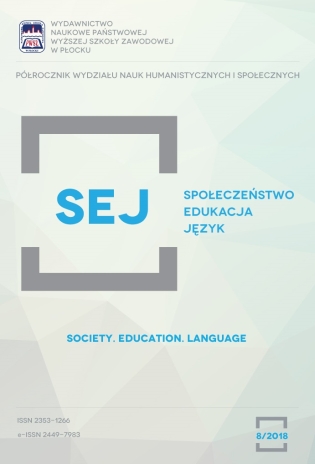William S. Burroughs’s Concept of Language as a Virus in the Context of American Beat and Postmodern Literature
Abstract
DOI: 10.19251/sej/2018.8(6)
Abstract
In this essay, we shall attempt to highlight W. S. Burroughs’s concept of language being a virus from outer space as remarkably different from the pertinent views of any other Beat writer. If Kerouac saw language as an efficient medium of expressing the immediacy and unpredictability of experience, while Ginsberg used it as just as efficient instrument of voicing sociopolitical protest or Buddhist truths (following in the footsteps of Romantic transcendentalists or Whitman), Burroughs saw it rather as an enigmatic, alien force. The latter could effectively disturb human understanding and communication, or even be used as a means of mental/social political oppression and manipulation on the global scale. Consequently, this, arguably, most atypical Beat writer appears to be a forerunner of a relevant trend in American postmodern fiction, represented e. g. by Ronald Sukenick or Raymond Federman, with their implied disbelief in language as a cognitively reliable means of handling human experience or reality as such: for example, by the lavishly applied typographical experimentation.
Key words: language, communication, manipulation, oppression, beat, postmodernism
References
References
Barth John. 1975. „Literature of Exhaustion.” In Surfiction: Fiction Now and Tomorrow, ed. Raymond Federman. Chicago: Swallow Press.
Beckett Samuel. 1958. The Unnamable. New York: Grove Press (originally published in French in 1953).
Burroughs William S. 1977. Junky. London: Penguin Books (originally published in 1953).
Burroughs William S. 1982. Naked Lunch. New York: Grove Press (originally published in 1959).
Burroughs William S. 1968. The Ticket That Exploded. New York: Grove Press (originally published in 1962).
Burroughs William S. 1965. Nova Express. New York: Grove Press (originally published in 1964).
Burroughs William S. 1973. The Wild Boys: a Book of the Dead. New York: Grove Press (originally published in 1971).
Burroughs William S. 1991. Ghost of Chance. New York: Whitney Museum of American Art.
Burroughs, William S. 2005. “Dziesięć lat i milion dolarów.” Trans. Marcin Szuster. Literatura na świecie 7/8 (originally published as „Ten Years and a Billion Dollars” in 1986).
Burroughs William S., Ginsberg Allen. 1963. The Yage Letters. San Francisco: City Lights Books.
Chambers Iain. 1985.Urban Rhythms. London: Macmillan.
Federman Raymond. 1971. Double or Nothing. Chicago: Swallow Press.
Fish Stanley E. 1972. Self-Consuming Artifacts: The Experience of Seventeenth- Century Literature. Berkeley, CA: University of California Press.
Friederich Hugo. 1978. Struktura nowoczesnej liryki. Trans. Elżbieta Feliksiak. Warszawa: PIW (originally published as Die Struktur der modernen Lyrik in 1956).
Ginsberg Allen. 1989. Howl. In The Longman Anthology of Contemporary American Poetry:1950 to the Present, eds. Stuart Friebert and David Young. New York: Longman,
Kerouac Jack. 1957. On the Road. New York: Viking Press.
Kopcewicz Andrzej, Sienicka Marta. 1982. Historia literatury Stanów Zjednoczonych w zarysie. Wiek XX. Warszawa: PWN.
Kostelanetz Richard. 1975. “New Fiction in America.” In Surfiction: Fiction Now and Tomorrow, ed. Raymond Federman. Chicago: Swallow Press.
Leyser Yony. Dir. 2010. William Burroughs: a Man Within. Yonilizer Productions/ Bulletproof Films.
Ruland Richard, Bradbury Malcolm. 1991. From Puritanism to Postmodernism: a History of American Literature. London: Penguin Books.
Steiner George. 1967. Language and Silence. New York: Atheneum.
Sukenick Ronald. 1967. Wallace Stevens: Musing the Obscure. New York: New York Unversity Press.
Sukenick Ronald. 1973.Out. Chicago: Swallow Press.
